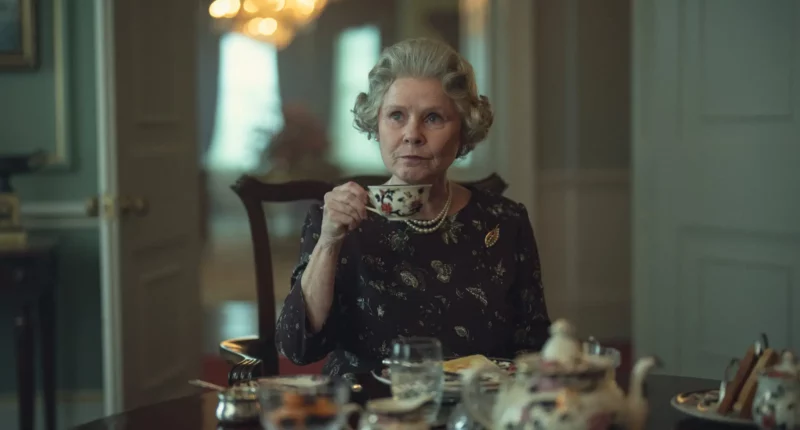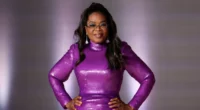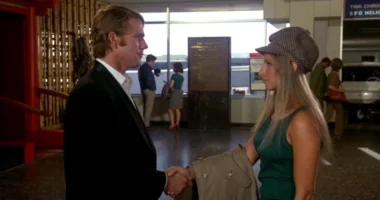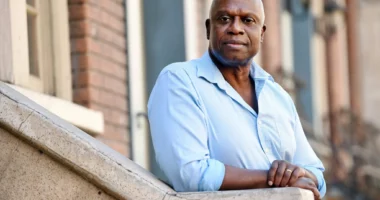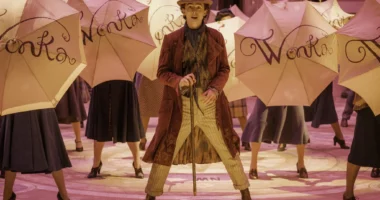The last tranche of episodes of “The Crown” has arrived on Netflix, the final six of 60 dating back to 2016, and I imagine I hear a sigh of relief from the show’s creator and primary writer, Peter Morgan. Not because the show is over but because he finally made his way past Diana, Princess of Wales, and could get back to the queen.
The first part of Season 6, released in November, covered the last months of Diana’s life and her funeral; the new episodes begin with her older son, William (Ed McVey), sorting out his feelings and sparring with his father, Prince Charles (Dominic West). Charles suggests that William could stay “with Granny at Windsor” until things calm down. He could be talking about the show itself: It’s always happier when it stays with Granny.
Morgan received an Oscar nomination in 2007 for his screenplay of “The Queen,” which also dealt with the impact of Diana’s death on Queen Elizabeth II but did so within the compass of palaces and government offices; Diana was a ghostly presence who provided the dramatic tension animating Morgan’s real theme, the enormous burden of duty and responsibility thrust upon the lonely individual who was lucky and unlucky enough to live at Windsor Castle.
In the much broader confines of “The Crown,” where Morgan was committed to dramatizing the entire modern history of the royal family, he could not avoid putting Diana onscreen for a considerable amount of time. And Emma Corrin, in Season 4, and Elizabeth Debicki, in Seasons 5 and 6, did excellent work portraying her; Debicki was nearly uncanny in her evocation of the princess’s physical affect and charisma.
But the scenes aboard yachts and in hotel suites, as much as they may have appealed to viewers whose main interest was Diana’s travails, never came alive in the way Morgan’s scenarios can. They were smart, perfunctory, a little dull despite the sometimes sensational events they chronicled. They felt like items checked off a list.
One Last Chapter for ‘The Crown’
Season 6B is back inside the parlors, bedrooms and country houses of Elizabeth and the other Windsors, and while it does not reach the taut and affecting dramatic highs of the show’s earlier seasons, it’s in its comfort zone.
Morgan and his directors (May el-Toukhy, Erik Richter Strand, Alex Gabassi and, returning for the finale, Stephen Daldry) quietly acknowledge the increasing age and decreasing relevance of their royal cadre. In repeated scenes, the whole crowd gathers in an overstuffed living room and enacts its particular domestic comedy: Prince Philip ranting (very entertainingly, as played by Jonathan Pryce); Princess Anne (Claudia Harrison) harrumphing; the Queen Mother (Marcia Warren) dithering; Princes Andrew (James Murray) and Edward (Sam Woolf) shifting in the background like anxious courtiers.
Also present in some of these scenes are Diana’s sons, the young princes William and Harry (Luther Ford), and the story line that receives the most space in these episodes is the coming-of-age of William. The family drama among William, Charles and Elizabeth (Imelda Staunton) and the romance between William and Kate Middleton (Meg Bellamy) play out conventionally, with Morgan’s typical polish but not much surprise. But as always with “The Crown,” they’re easy to watch because of the quality of the performances, including West as a well-meaning but dim Charles, Ford as the loose cannon Harry and Eve Best as Kate’s shrewd mother, Carole Middleton.
The Middletons figure in one of the dramatic choices Morgan has made that will generate heat among historical purists: In accord with various unattributed reports, he suggests that Carole Middleton pushed her daughter toward the young prince and even engineered some of their encounters. In critical terms, which are all that matters here, it works because it gives Best something interesting to play. Other choices that might not jibe with the facts on the ground — the introspection and perspicacity of Pryce’s Philip, the always pure motives of West’s Charles — also serve the actors well.
One of Morgan’s dances with history is difficult to credit. An episode concerning the bond between Elizabeth and her much livelier sister, Margaret (Lesley Manville), recreates the night in 1945 when they mingled incognito with the crowds celebrating V-E Day in London. Morgan pushes the point a little too hard when the evening culminates in having the young Elizabeth (Viola Prettejohn) jitterbug with an American soldier.
He is always on safe ground, though, when he sticks to the intensity of the relationships among the royals and their various levels of devotion to the jobs they’ve been stuck with. And as the story winds down, there are scenes whose fusion of intelligence and emotion reaches the high bar Morgan has set for himself. When Philip explains his grandson William’s anger to his son Charles, Pryce gets across the tangled mix of impatience and regret. Staunton makes us feel the pulsating anger of Elizabeth as she sits through a lecture about the royal family’s failings from her prime minister, Tony Blair (Bertie Carvel).
Staunton has been fine as the queen, but she hasn’t, as her two seasons progressed, given the character the same magisterial force that Olivia Colman and Claire Foy brought to the younger Elizabeths. Some of that is her softer presence (she’s a fine comedian, a quality that the role doesn’t often play up), and some of that has been a lack of screen time, as the story stayed closer to Diana, Charles and William.
If her Elizabeth has seemed a little fuzzy, though, the responsibility lies with Morgan. His conception of the queen as a captive to duty and tradition — someone who can be herself only if she leaves her post — puts the character in a straitjacket. And given that Elizabeth does not step down, despite indications that she thought about it, it leaves him struggling to find a dramatically satisfying ending.
Morgan acknowledges his own dilemma when — spoiler alert! — he brings back Foy and Colman, who argue with Staunton in a dramatization of Elizabeth’s uncertainties when Charles marries Camilla Parker Bowles (Olivia Williams) in 2005. Foy distills what she, Colman, Staunton and Morgan have been showing us for six seasons: Elizabeth had to do it because only she could do it; no one else was up to the job. (Though eventually William might have what it takes.) With that, Staunton’s Elizabeth walks off into the light, even though she has another 17 years to live. When you realize you’ve saved the monarchy, and won a boatload of Emmys in the bargain, there’s no need to hang around.

